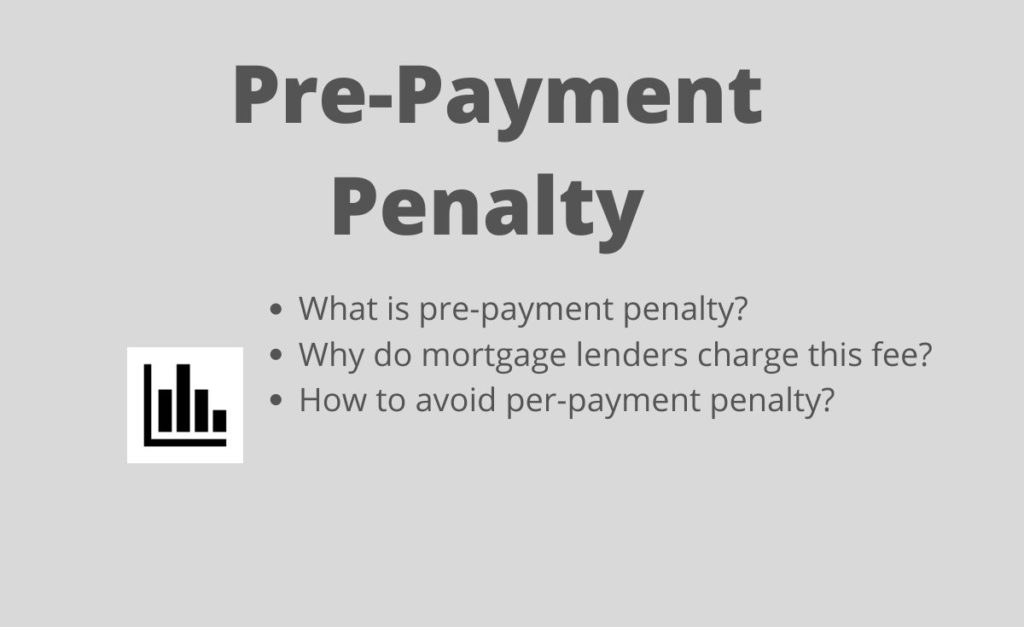Lenders want you to borrow money and pay it off based on the terms of the loan. Most financial products such as loans and mortgages come with pre-established monthly payments until the loan is fully paid off. It is always important to make all your payment on time. However, some lenders impose a prepayment penalty when you pay more than you are supposed to. Creditors make money from interest, fees, and other charges. When you pay off your loan too fast, the lender ends up with less return on investments.
What is a prepayment penalty?
A prepayment penalty is a fee that is imposed on borrowers by the lender for making a partial or a full payment early than they are supposed to, according to the Consumer Finance Protection Bureau (CFPB). All lenders do not charge the prepayment penalty. However, borrowers must read the mortgage documentation very carefully as this fee could be among hidden fees.
How do mortgage lenders make money?
Before we answer why a mortgage lender would charge you for making early payments, we need to elaborate on how lenders make money on issued mortgages.
Without incentives, the lender would not lend you the money. This is because lending you money is a risk taken by your lender. To offset the risk, the lender will collect interest on the money you borrowed. This interest will vary from one lender to another. Factors that will affect the interest rate include but are not limited to the borrower’s credit score, the amount needed, financial stability, debt to income ratio, etc.
Lenders are always happy when they get their money back. However, paying them too fast will reduce their returns, and this does not sustain their businesses. The longer you keep the money, the more interest they collect.
At the same time, collecting less money from the borrower could lead to a high chance of default on the mortgage. To maximize profits and reduce risks, lenders will manipulate how fast you can pay off the mortgage.
In addition, moneylenders make money through other charges such as late fees, prepayment penalties, etc.
>>MORE: Mortgage Lender: What Is A Mortgage Lender?
Why do lenders charge a prepayment penalty?
By now, you might be wondering why lenders will penalize you when you pay them. Lenders limit how fast you can pay off the mortgage so that they can collect interest for a long time. Making a huge payment at once or multiple times can push you off the allowed limit.
Once you pay more than you are supposed to, the lender will charge you a prepayment penalty. As noted by Quicken Loans, most lenders allow borrowers to pay up to 20% of their mortgage balance every year. This means that a prepayment penalty could be applied if you pay more than 20%. You must also understand that this percentage will be different from one lender to another.
In addition, prepayment penalties apply when the borrower refinances the house or sells the house. These two actions will lead to the full payment of the entire mortgage amount. As a result, lenders will not collect all interest they could have gained if you kept the money. For this reason, you will pay a prepayment penalty.
>>MORE: Fixed-Rate Mortgage(FRM) Definition
How much does the prepayment penalty cost?
The prepayment penalty rate will vary from one lender to another. However, the average prepayment rate is 80% of six months of interest, according to The Truth About Mortgage. For example, your prepayment penalty will be $1,600 if your six-month interest total is $2,000.
How to avoid a prepayment penalty
The best and easiest way to avoid prepayment penalties is to not pay more than your lender allows you in a given time. You should always watch your payments and work with your lender to make sure that everything is in accordance with the mortgage terms.
Another way to avoid prepayment penalties is to use a lender who does not charge this fee. This means that before you sign up for a particular mortgage, you must read the mortgage documents very carefully to make sure that there is no hidden fee. You can also ask your lender and keep a record of your conversations for legal purposes if it comes to that.









